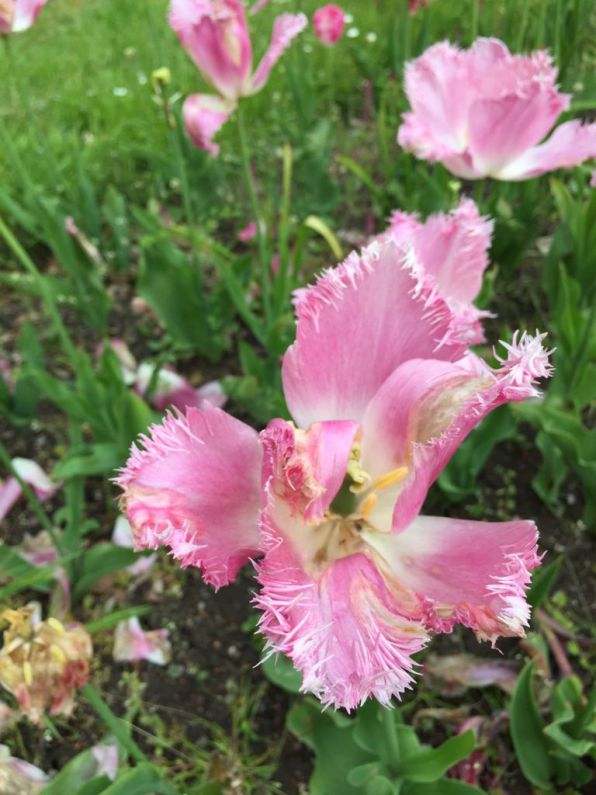20/08/20 BLOG 11: SELF-COMPASSION
|
Hi everyone, Anna here. Thanks to all our guest contributors recently for their lovely blogs. This week, I’m back to take stock and explore together an idea that underpins self-care: self-compassion. The world we are currently living in is unsettling, confusing and at times downright weird. Many of us are more isolated than before March due to the ongoing social distancing and local lockdowns in some areas (sending some love your way Aberdeen!) This ongoing lack of connection and apprehension about the future can compound poor mental health, along with a lack of hope and a harsh inner critic berating us when we “fail” at doing even some basic self-care. That’s why this week I thought it would be great time to look more at self-compassion. This idea is one that I come back to time and time again, particularly when I feel as though I’ve been lacking in finding the time or energy for self-care. As we’ve discussed already here on the Together Alone blog, the very notion of self-care has been co-opted in a way that can leave us at times feeling as though we’re not “doing” self-care right if it’s not in an Instagram picture, hashtag friendly format. This “failure” to either do self-care or do it in the “right” way can lead to feelings of insecurity, lack of value and self-critical thoughts.
“When we work from a place, I believe, that says ‘I’m enough,’ then we stop screaming and start listening, we’re kinder and gentler to the people around us, and we’re kinder and gentler to ourselves.” Brené Brown SELF WHAT NOW?
“Self-compassion is regarding yourself compassionately. Self-care, by contrast, is treating yourself compassionately” Self-care is so often described as doing something for yourself, or giving yourself a break, doing something externally for ourselves. This is more like a “doing” thing – so going for a run, taking time to sort out a budget or doing something creative. Self-compassion is more about how we think about ourselves or treat ourselves internally – so it’s more about the way that we speak to ourselves in our heads for example. Basically, the distinction there is between thinking and doing. They are both important to one another – treating ourselves with compassion can lead to us feeling we are more worthy of self-care for example. Allowing yourself time to change how you speak to yourself can be a form of self-care itself because it means you are investing time in acknowledging that you are important and worthy of love and care. It is something we can all do without having to pay money or demonstrate we are doing self-care – something just for you. We can all be our own worst enemy, with our inner critic chattering away at all hours, focussing on our insecurities and perceived failings. Self-compassion is about allowing yourself to make mistakes, allowing yourself to have an off day and changing that voice inside your head from your own harshest critic to a caring, loving friend. It is the idea of giving yourself the same time, care and compassion that you would a friend who was in your situation. Instead of telling yourself you could have done better, it can be reframed as “good job, you tried, I’m proud of you!” We tend to be much harder on ourselves than we ever would be with someone else we love or care about. This “act of love understanding, and acceptance “is not a skill we necessarily learn overnight; it can take a bit of practice and effort to change that inner monologue. But the good thing is, we can start that practice without having to believe what we are telling ourselves – that will come with time. |
PUTTING SELF-COMPASSION INTO PRACTICE
“The truth is: Belonging starts with self-acceptance. Your level of belonging, in fact, can never be greater than your level of self-acceptance, because believing that you’re enough is what gives you the courage to be authentic, vulnerable and imperfect.” Brené Brown Self-compassion is made up of 3 key parts, all of which can be practised with easy(ish) exercises. These components are self-kindness instead of self-judgment and criticism, common humanity instead of isolation, and mindfulness instead of over-identification with painful thoughts and emotions. Self-kindness is being caring and gentle with ourselves, speaking to ourselves as we would to a loved one. Common humanity is understanding that our experiences of turmoil and feelings or failure are part of being human – we all experience these things and they don’t make us different, or weak or wrong. Mindfulness is a non-judgemental awareness of how we are feeling where we allow ourselves the space to apply self-kindness and recognise the commonality of our experiences. The three elements interact with each other to create the space to practice self-compassion. There are various ways you can practice these and I’ll give you a wee helping hand in how to get started (think of me as your future voice of self-compassion!) One easy thing if you’re feeling that inner critic nipping away at you is to write yourself a letter in the third person. Write it as if you are writing to a friend or loved one. Give yourself the caring, loving advice you would offer to them. How does it feel to gently turn around that voice and talk to yourself like a friend? How does it feel to let the words sink in and connect? It might not feel easy to begin with, but this is only the first step so it’s absolutely OK if it feels a bit weird! It will become easier and you will start to believe your own words more with time. You can also use self-compassion to help when you are facing a difficult situation - here is a way to give yourself a self-compassion break. Another way you can try and practice self-compassion is to follow these 6 steps:
If self-compassion is something that speaks to you and you would like to learn a bit more about it, as well as look at more exercises and meditations, you can find helpful information here. If you’ve been struggling with your inner critic, or beating yourself up for not finding time to practice the self-care that helps you, hopefully thinking about and practising a bit of self-compassion might help you to give yourself a break. The photos I’ve included this week are to show that there’s beauty in imperfection – we are all works in progress and worthy of being nicer to ourselves. In the ever-wise words of Brené Brown (can you tell she’s one of my heroes?) “Imperfections are not inadequacies; they are reminders that we’re all in this together." “You are imperfect, you are wired for struggle, but you are worthy of love and belonging.” |





